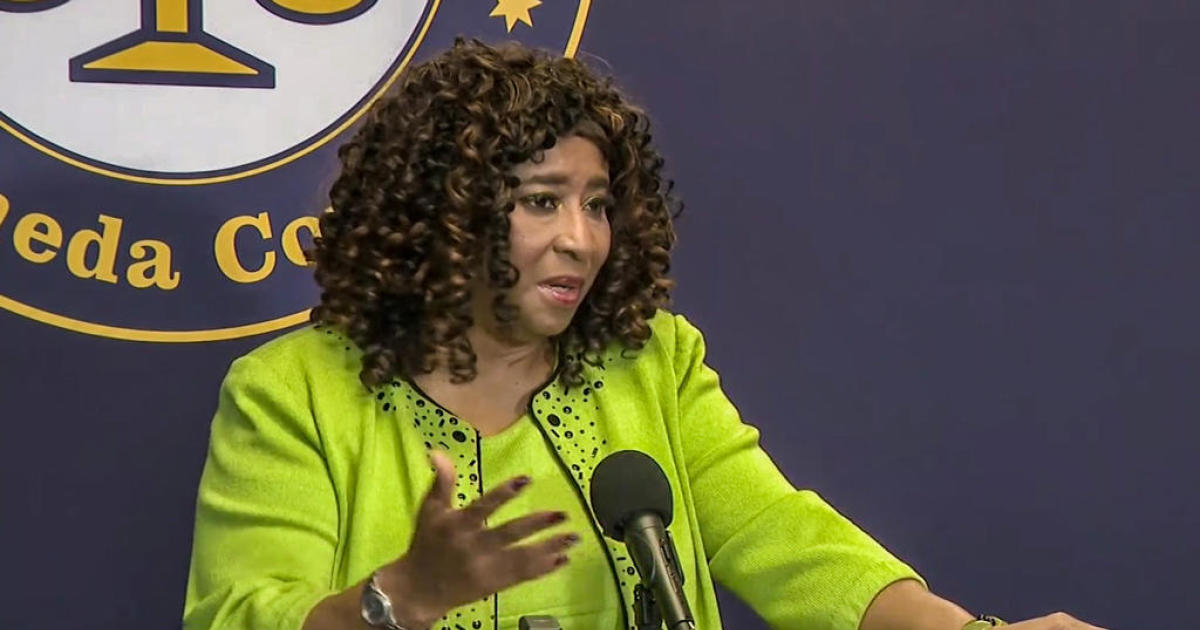COVID Reopening: Cal/OSHA Delays Debate On Lifting Virus Rules For Workers
SACRAMENTO (AP) — California workforce regulators will aim for a mid-June easing of workplace masking and social distancing requirements to conform with a broader state order, asking to delay a debate Thursday on how quickly they should drop coronavirus safety rules for employees.
Cal/OSHA's staff said it would aim "to make possible a targeted effective date of June 15, 2021," instead of proceeding with a proposal that would have made businesses wait until July 31 to ease some pandemic restrictions. It also would impose new requirements that dozens of business groups called too onerous.
Having two conflicting enforcement dates would be "a huge source of confusion and problems," California Chamber of Commerce policy advocate Rob Moutrie told the California Occupational Safety and Health Standards Board on Thursday.
Chairman David Thomas said the board would consider waiting for a future meeting to decide on changing the rules, after its staff cited last week's U.S. Centers for Disease Control and Prevention guidance that fully vaccinated people can now skip face coverings and distancing in virtually all situations.
Cal/OSHA deputy chief Eric Berg in a memo to the board Wednesday evening said "it is important to revisit the proposed COVID-19 prevention emergency regulations in light of this new guidance."
California health officials said this week they will keep the state's rules that generally require indoor masking and distancing until the state more broadly lifts its pandemic restrictions on June 15, a date also endorsed by Gov. Gavin Newsom.
Cal/OSHA regulations apply in almost every workplace in California, including those in state and local governments. Its emergency temporary standards related to the pandemic apply to all employees except those working from home or where there is a single employee who does not have contact with other people.
California has made a remarkably fast transition from being an epicenter for the virus at the start of the year to a record low infection rate of less than 1% and an economy with all sectors now reopened, albeit with restrictions. More than half the state's population of nearly 40 million has received at least one vaccination dose.
Employers told the board that the improvement makes the rules less necessary, while worker advocates said having half the population unvaccinated means precautions are still needed.
Business groups welcomed Cal/OSHA's intent to make the effective dates consistent, even as they lined up to criticize other new proposed requirements.
"This is great news and it will make the regulation more workable," Phylmar Regulatory Roundtable director Helen Cleary told the board. But the coalition of large businesses also believes the proposed requirements would "create new unnecessary burdens and requirements," she said.
Business groups are particularly upset with a provision in the proposal requiring that employers provide masks for voluntary use starting July 31.
That potentially means regularly providing N95 face masks to 2 million workers, CalChamber's Moutrie said, assuming 20% of the state's 20 million workers can't or won't be vaccinated and half of those work indoors. The rules also would require employers to provide free coronavirus testing during work hours to unvaccinated employees with COVID-19 symptoms.
Requiring employers to provide masks would bring "significant cost to an industry that is struggling," said Katie Hansen, senior legislative director for the California Restaurant Association. Another requirement that workplaces reinstall partitions between workers every time there is a coronavirus case also is impractical, she said.
Cleary said a majority of companies have decided not to require employees to be vaccinated or to track their vaccination status, which she and others who echoed her comments said raise potential privacy and enforcement risks.
"Related to face coverings, N95s and physical distancing, are so restrictive, that to comply with them, an employer with a large workforce will be pushed to track vaccination status," Cleary said.
Requiring employers to provide masks and make other provisions like installing partitions and air filters "adds more burdensome obligations to employers just as the federal government is loosening restrictions and California's Governor appears to believe California is on track to open in June," more than 40 groups said in a comment letter. They include organizations representing California cities and counties, retailers and restaurateurs.
More than 40 agricultural organizations separately objected that "the state cannot reopen if businesses are still required to comply with strict and unnecessary COVID-19 restrictions."
But labor and other advocates urged caution in lifting workplace pandemic safety rules.
"Every day we hear from workers about their fear of going to work, getting the virus and bringing it home to their families," said Eddie Sanchez of the Southern California Coalition for Occupational Safety and Health that advocates particularly for workers who are immigrants or people of color. "We know from experience now that employers will not do what's right or what's safe on their own."
Maggie Robbins, occupational health specialist with Worksafe Inc., an Oakland-based worker advocacy group, said Cal/OSHA shouldn't ease workplace rules just because the state is relaxing requirements in social settings.
"We think this is going to lead to basically open season in the workplace for all controls to be relaxed, or most controls to be relaxed," she told the board. "People still need protection at work, I don't think we can forget that."
The board's staff is now reconsidering rules that would require workers to wait until July 31 before they can stop wearing masks indoors and distancing, unless everyone in the same room is fully vaccinated and not showing coronavirus symptoms.
"Exemptions for fully vaccinated employees will not work if 100% of the workforce must be vaccinated to benefit," Cleary said.
But Cal/OSHA's staff warned that some regulations are needed even as conditions improved.
"Even if the state is able to reopen fully in June, COVID-19 is likely to remain a significant workplace hazard for months to come, if not longer," they advised the board.
© Copyright 2021 CBS Broadcasting Inc. and Bay City News Service. All Rights Reserved. This material may not be published, broadcast, rewritten or redistributed.



